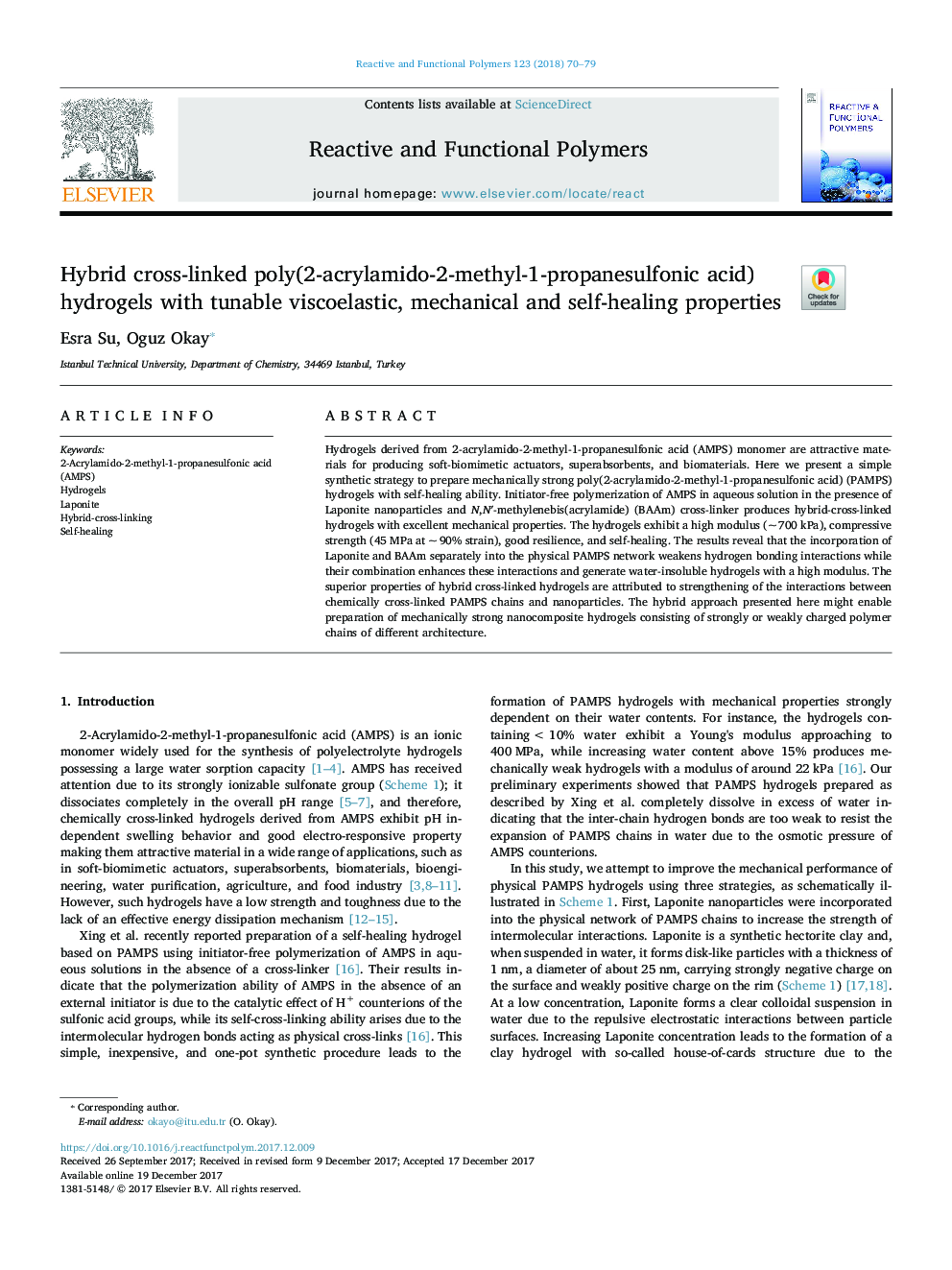| Article ID | Journal | Published Year | Pages | File Type |
|---|---|---|---|---|
| 7826437 | Reactive and Functional Polymers | 2018 | 10 Pages |
Abstract
Hydrogels derived from 2-acrylamido-2-methyl-1-propanesulfonic acid (AMPS) monomer are attractive materials for producing soft-biomimetic actuators, superabsorbents, and biomaterials. Here we present a simple synthetic strategy to prepare mechanically strong poly(2-acrylamido-2-methyl-1-propanesulfonic acid) (PAMPS) hydrogels with self-healing ability. Initiator-free polymerization of AMPS in aqueous solution in the presence of Laponite nanoparticles and N,Nâ²-methylenebis(acrylamide) (BAAm) cross-linker produces hybrid-cross-linked hydrogels with excellent mechanical properties. The hydrogels exhibit a high modulus (~Â 700Â kPa), compressive strength (45Â MPa at ~Â 90% strain), good resilience, and self-healing. The results reveal that the incorporation of Laponite and BAAm separately into the physical PAMPS network weakens hydrogen bonding interactions while their combination enhances these interactions and generate water-insoluble hydrogels with a high modulus. The superior properties of hybrid cross-linked hydrogels are attributed to strengthening of the interactions between chemically cross-linked PAMPS chains and nanoparticles. The hybrid approach presented here might enable preparation of mechanically strong nanocomposite hydrogels consisting of strongly or weakly charged polymer chains of different architecture.
Keywords
Related Topics
Physical Sciences and Engineering
Chemistry
Organic Chemistry
Authors
Esra Su, Oguz Okay,
